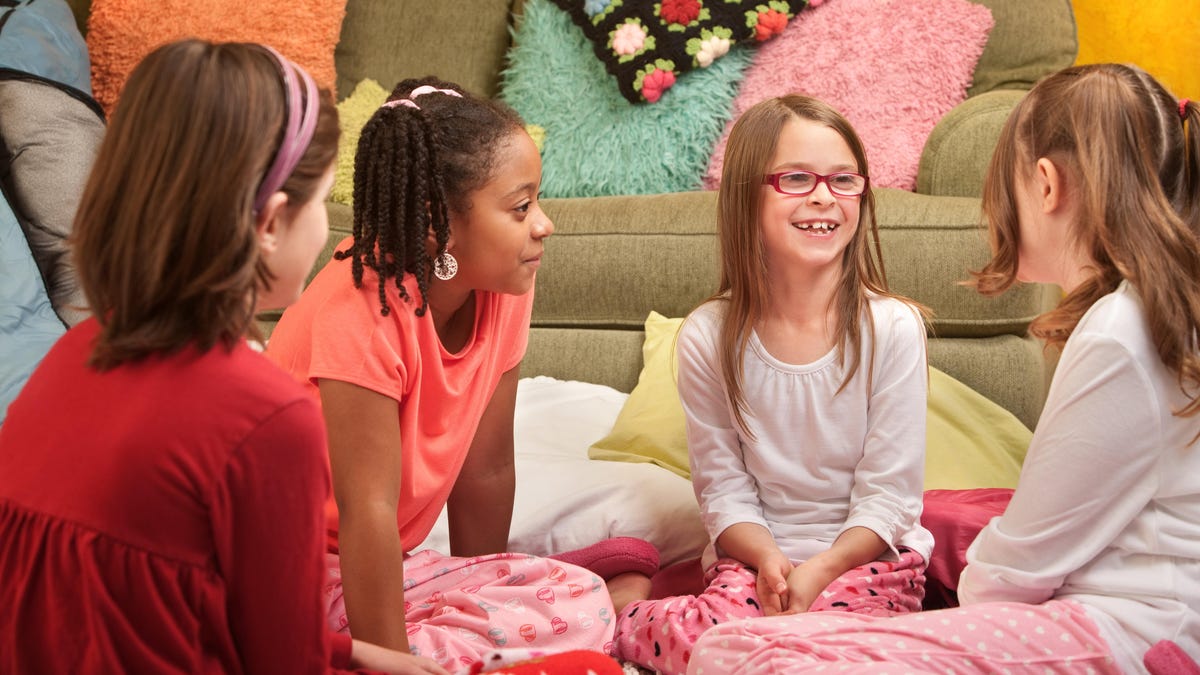
Hardwood timber By third grade (circa the early 1980s), I was regularly sleeping over at friends’ houses. Birthday slumber parties were common, as well as random Friday nights watching VHS tapes in dark dens until our eyes burned. At one friend’s house, we choreographed Wham! songs, and at another, I absorbed MTV like a sponge because we didn’t have cable at my house.
I figured when my own children hit second or third grade, we would start to make decisions about whether they were ready for sleepovers. I did not anticipate that sleepovers had practically stopped being a thing at all. I also did not expect that I’d barely know my kids’ friends or their parents. See, I grew up in the same small town my parents had grown up in. Everyone knew each other, and my earliest sleepovers were with neighbors or the children of people my parents had known their whole lives.
Now, we call everyone a “friend” even though they are almost all practically strangers, and fear of the unknown is keeping many parents from condoning sleepovers. In recent online and media debates about sleepovers, parents have cited big concerns about letting their children sleep at a friend’s house:
How much adult supervision will they have?Are there guns in the home?Is the family COVID vaccinated?Are alcohol and drugs sufficiently secure?Will other parents take my child’s allergies/health condition seriously?Will the kids have access to the internet?What other siblings, friends, and adults will be in the home, and do I know them?How do I know my child will be safe from abuse?Who even are these people?Besides those serious concerns, sleepovers can just be a pain. You might get that midnight call to pick up your child because she’s too anxious to sleep, or they come home grumpy because they stayed up all night. If you are hosting the sleepover, there’s pressure to plan wall-to-wall activities. And then you can’t sleep because it’s not a small deal to have an extra minor in your care overnight.
But what about the benefits? In my childhood, it was thrilling to be in an unfamiliar home, to see how other families function. To watch MTV and Rambo before I was really mature enough. Kids do need exposure to other lifestyles and different social norms to contextualize their own experience in society. If we don’t allow them to sleep over with friends, what are they missing out on?
In my 1990s teenage-hood, sleepovers were a time to make our big plans, extend adventures past curfew, and experiment with independence before we were really unsupervised. Do teens still need those small steps toward independence? Or is the sleepover a relic of Gen X nostalgia while our kids have moved on to other (online) ways of building deeper friendships and independence?
There are alternatives to the traditional sleepover where young kids can get some of the freedom and novelty without as much risk:
Allowing sleepovers with trusted family members or family friends.A “sleep-under” (or half-over or late-over): Allowing your child to play late at a friend’s house but come home for bedtime.Let them go on daytime outings with friends and their families where you can be present and get to know everyone better.Go camping with other families, which gives the kids a sleepover experience but all parents are present for supervision.So far, my girls really like to be at home and haven’t asked for a sleepover. Or they are satisfied to “sleep over” in each other’s rooms until they are actually tired and migrate back to their own beds. I wonder if their lack of interest is a sign of the cultural shift away from this adolescent custom that seemed like a required part of my childhood. Is the debate moot because kids don’t even care about sleepovers like we did?
We would love to hear your thoughts on how you navigate sleepover decisions as a parent. Do you have your own rules about when you will allow a sleepover or firm reasons for banning them all together? Are you, like me, surprised it hasn’t even come up? Let us know in the comments.

